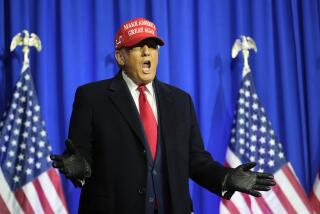‘What you reap, you sow.’ Many Americans find it hard to feel sympathy for a COVID-afflicted Trump
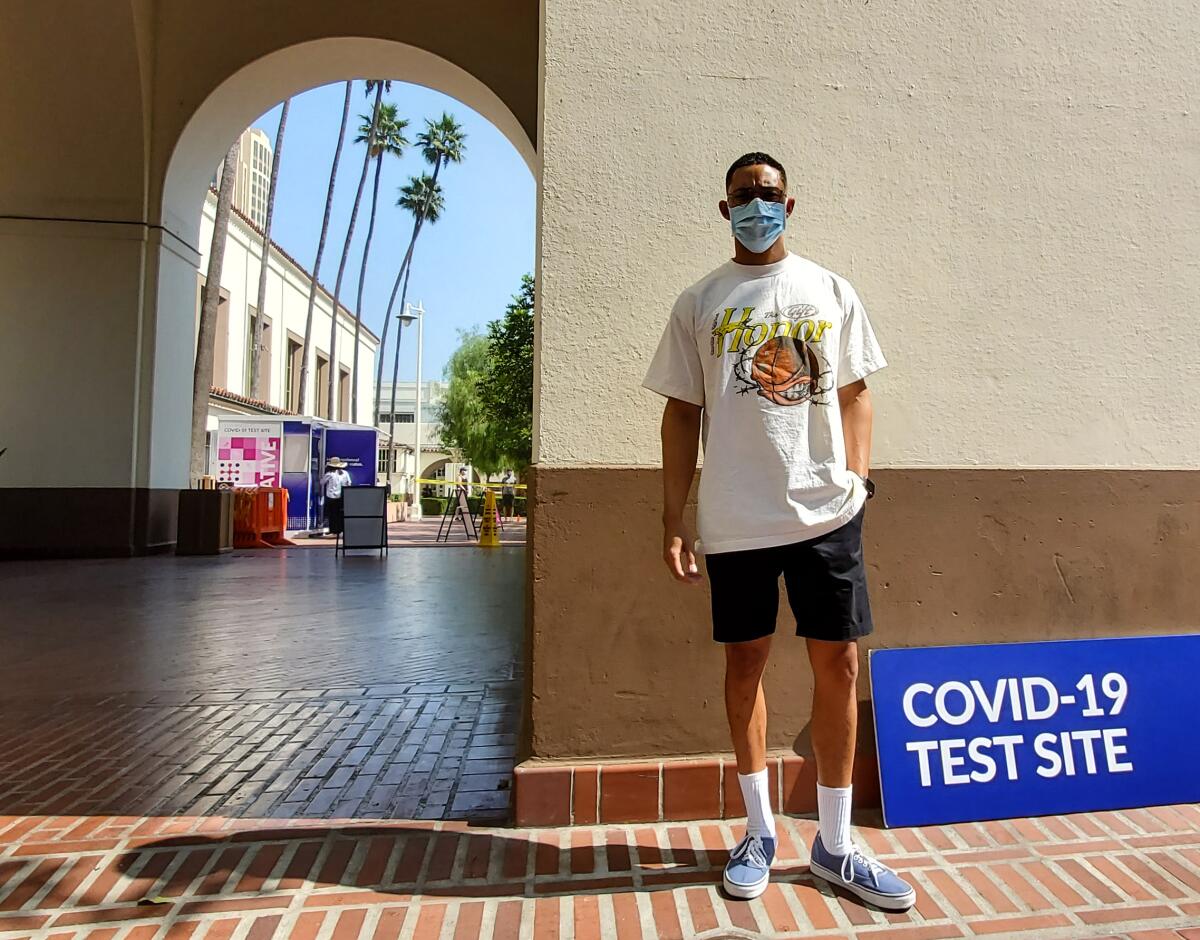
President Trump’s case of COVID-19 has tested Americans’ willingness to express empathy for a leader who, many believe, brings out the worst in people.
Trump’s detractors say the scorn and schadenfreude heaped on him since his diagnosis have been long in the making, given the president’s proclivity for using his powerful position to call for his political enemies to be prosecuted, disparage people he doesn’t like as “stupid” and “nasty,” spew racist and xenophobic rhetoric, and downplay a pandemic that has killed more than 213,000 people in the United States.
“I can only wish him a lengthy recovery,” said Tim Espinoza, a 36-year-old healthcare worker, as he arrived at Union Station in Los Angeles recently for a coronavirus test. Espinoza believes if Joe Biden were the one who’d tested positive, Trump wouldn’t have hesitated to ridicule his Democratic rival.
“If he gets better, he gets better — if he doesn’t, he doesn’t,” Aaron Sanders said of Trump as he arrived for his test. The 33-year-old project manager for a media company borrowed a dismissive expression Trump used to describe the climbing death toll from COVID-19: “It is what it is.”
How did a nation’s connection to its leader become so frayed that many citizens would forgo heartfelt wishes of recovery for an ailing president in favor of righteous indignation, claims of cosmic justice and accusations that his illness is a politically motivated hoax?
Even Americans who have no love for Trump have wrestled with that question.
Tania Verafield understands why Americans feel justified in piling on a president who mocked the very idea of empathy at his acceptance speech at the Republican National Convention — but it troubles her.
The 37-year-old L.A. actress and Democrat placed her hand on her heart as she spoke of reconciling her own spiteful reaction to Trump’s illness with how she would normally behave.
“My initial response, which truly was, ‘I hope he dies,’ really causes me suffering, because I don’t feel that that’s the kind of person that I am,” she said at the coronavirus testing site.
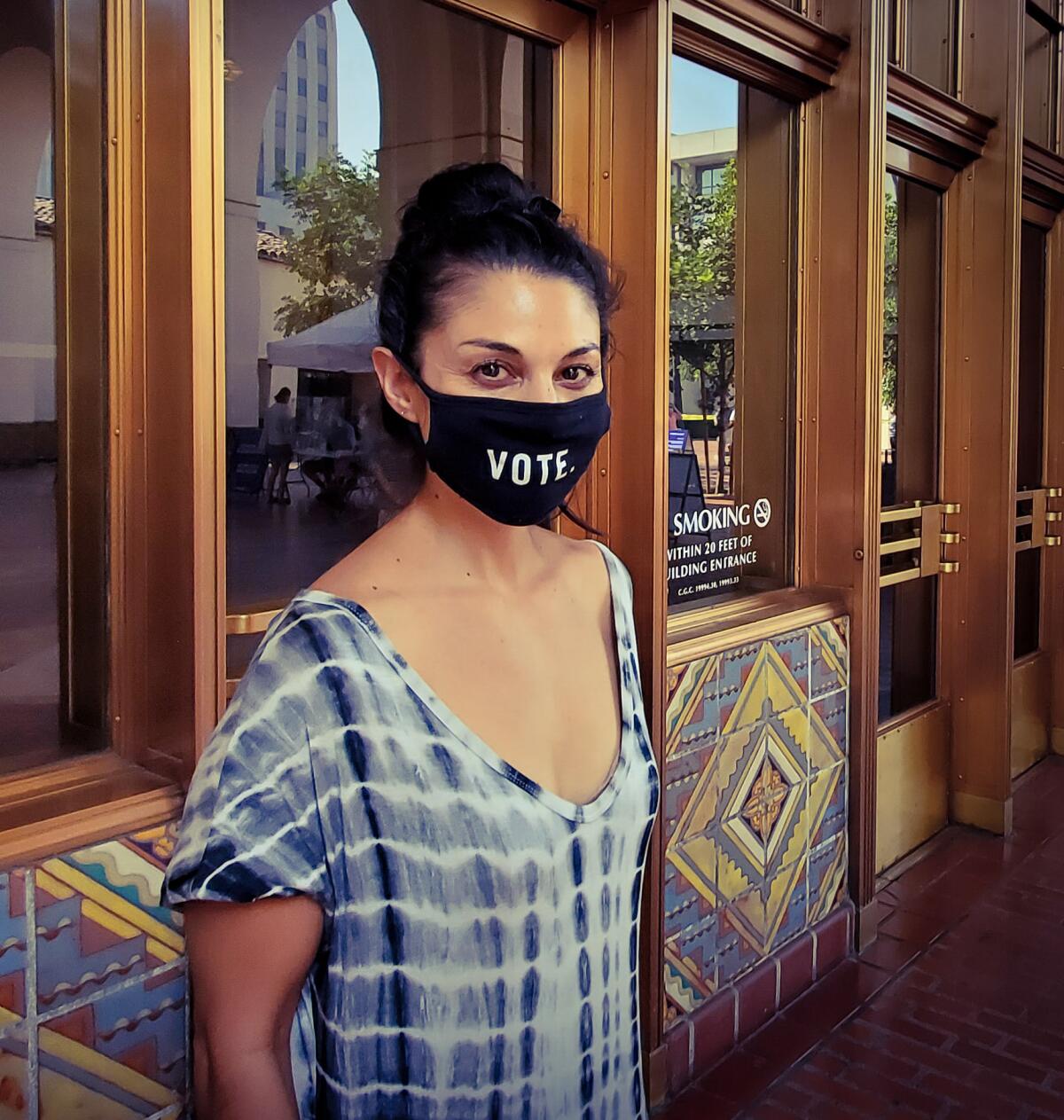
“It goes to what Michelle Obama said: ‘When they go low, we go high,’” said Verafield, who wore a black mask with the word “VOTE” printed on it. “But I think that is what the president brings out, even in the best of people. With all of the opportunities he’s had to make right, or do something good, he has failed to do so.”
The cast of “Saturday Night Live” joined in, too, with host Chris Rock saying in his opening monologue last weekend: “My heart goes out to COVID.”
Many Americans have taken the president’s illness as the perfect opportunity to do unto Trump — who made fun of Biden for wearing a mask and called opponent Hillary Clinton feeble during her bout with pneumonia in the 2016 campaign — what he has done to many others.
“‘I don’t feel bad for him.’ That’s what I’ve heard people say,” said Keesha Middlemass, an assistant political science professor at Howard University in Washington, D.C. “He gets the best doctors, he gets access to testing and yet he still won’t wear a mask. It’s hard to empathize with stupid.
“It’s the whole idea of Karma or the chickens coming home to roost or the boomerang effect,” she said.
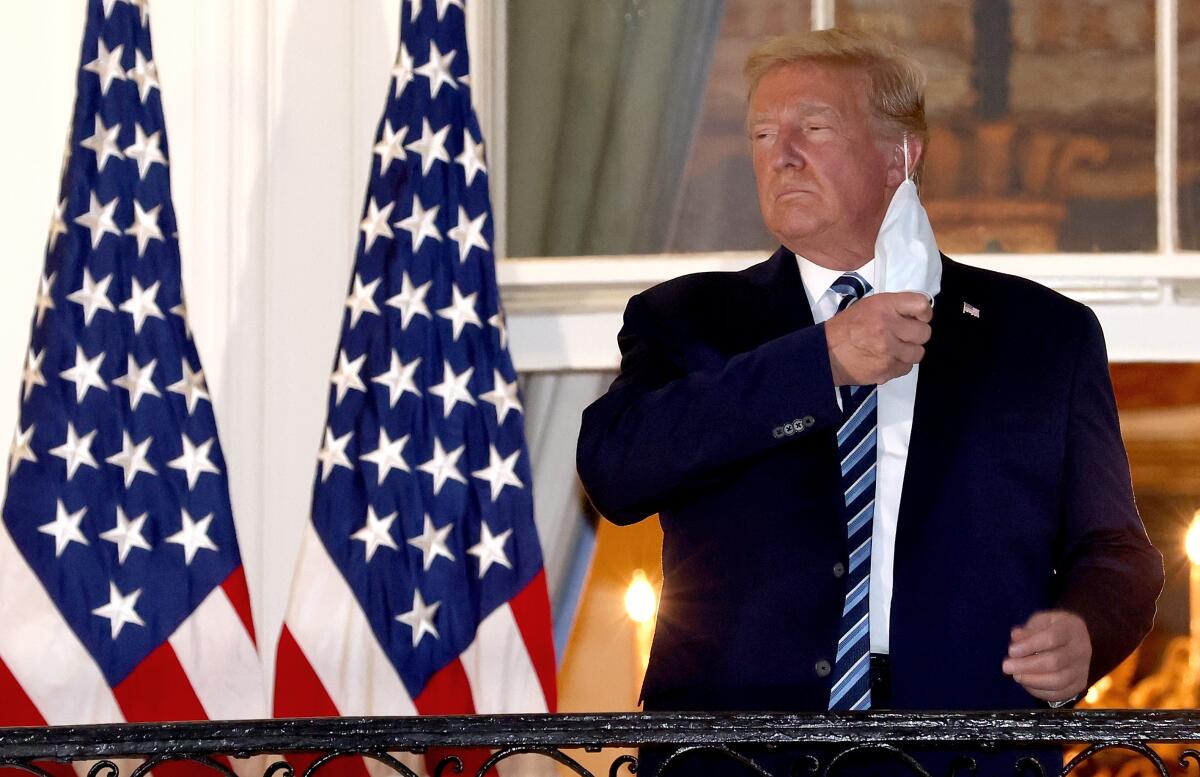
A majority of Americans agree that Trump placed himself in jeopardy — and sent a dangerous message to his fellow citizens — with his cavalier attitude about wearing masks and his insistence on holding large events with mostly unmasked spectators who are not safely distanced from one another.
A Reuters/Ipsos poll released Sunday found that 65% of respondents agreed that “if President Trump had taken coronavirus more seriously, he probably would not have been infected.”
Verafield said that although the president doesn’t display the best of human nature, it doesn’t mean the rest of America should follow his example.
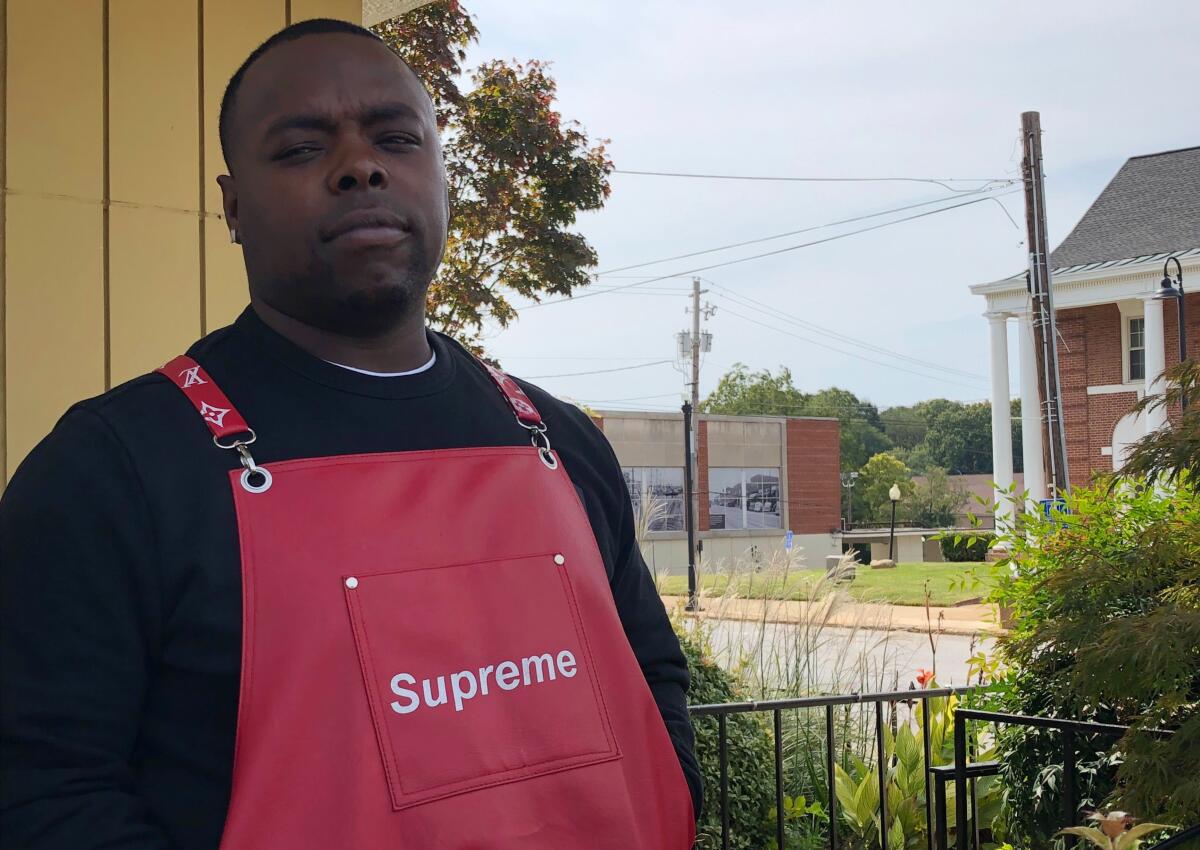
Across the country in the Atlanta area, Chi Williams explained why something so wrong — in this case disparaging a sick president — feels so right to many Americans.
“He lacks sympathy for others, so he don’t get no sympathy,” said Williams, 32, a barber at the Community Kutz & Kurlz in East Point, a city about 8 miles south of downtown Atlanta.
“That’s the treatment that he gives people around him and the lack of care that he gives us,” Williams said as he smoked outside the barbershop.
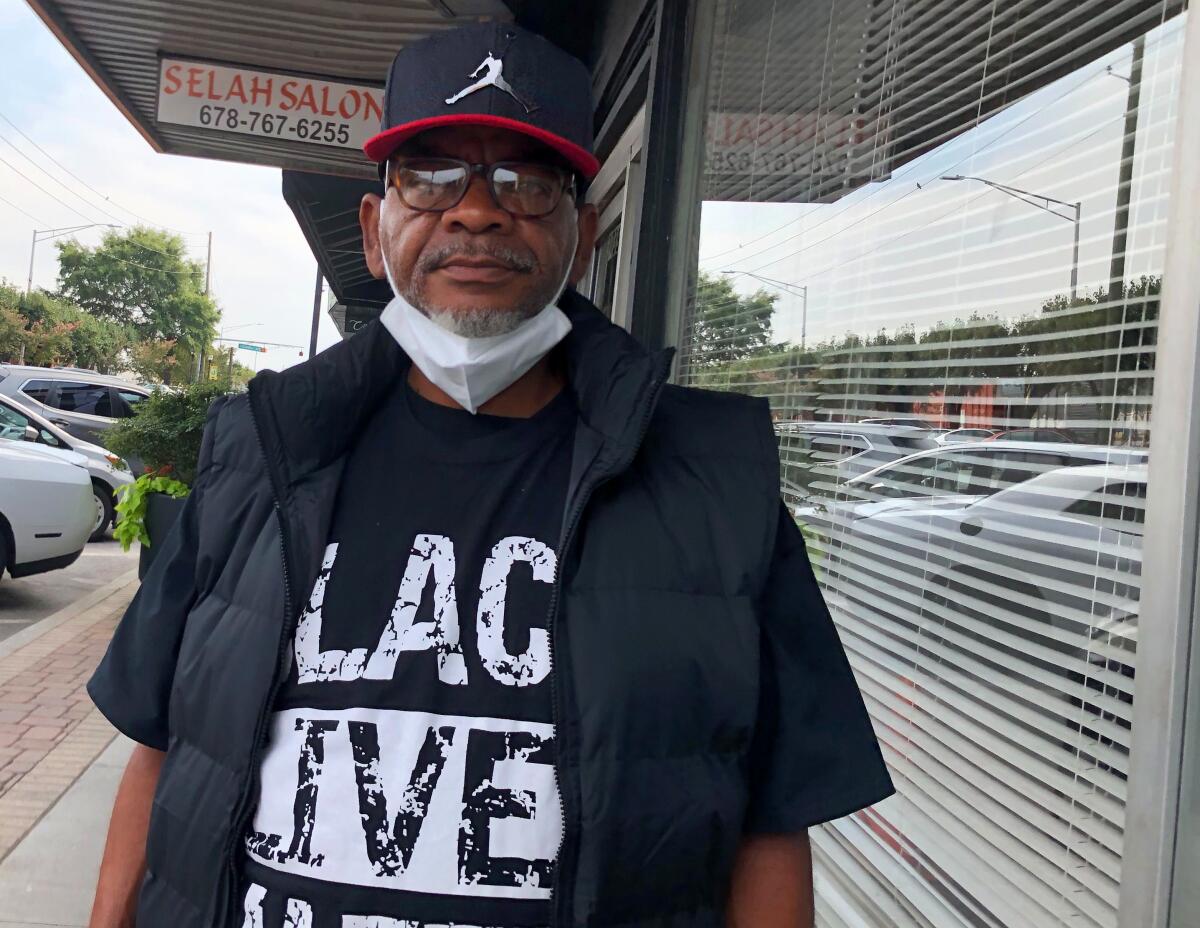
Williams credits Trump with backing stimulus payments to Americans at the onset of the slowdown and doesn’t think he’s a bad president. But it’s hard for Williams to see any wisdom in Trump’s failure to wear a mask in public when so many are getting sick and dying from the virus.
“He’s not taken it seriously — and that’s why he got it,” Williams said.
Timothy Arnold, a landscaper and retired U.S. Marine who lives on Atlanta’s Westside, said he didn’t wish Trump harm, but believes God is sending a message to the president, who for much of his time in office, and for most of the 74-year-old’s life in the public eye, has come off as self-absorbed.
“Sometimes God gives you stuff that you don’t care about to bring your attention to it,” said Arnold, 52. “The Bible speaks that what you put out, you bring back — what you reap, you sow.”
Whether or not Trump testing positive was an act of divine intervention, the president seems unfazed and unwilling to change.
On Sunday, the still-contagious president exposed his Secret Service detail to the virus during a drive past cheering supporters outside the military hospital in Maryland where he’d been airlifted.
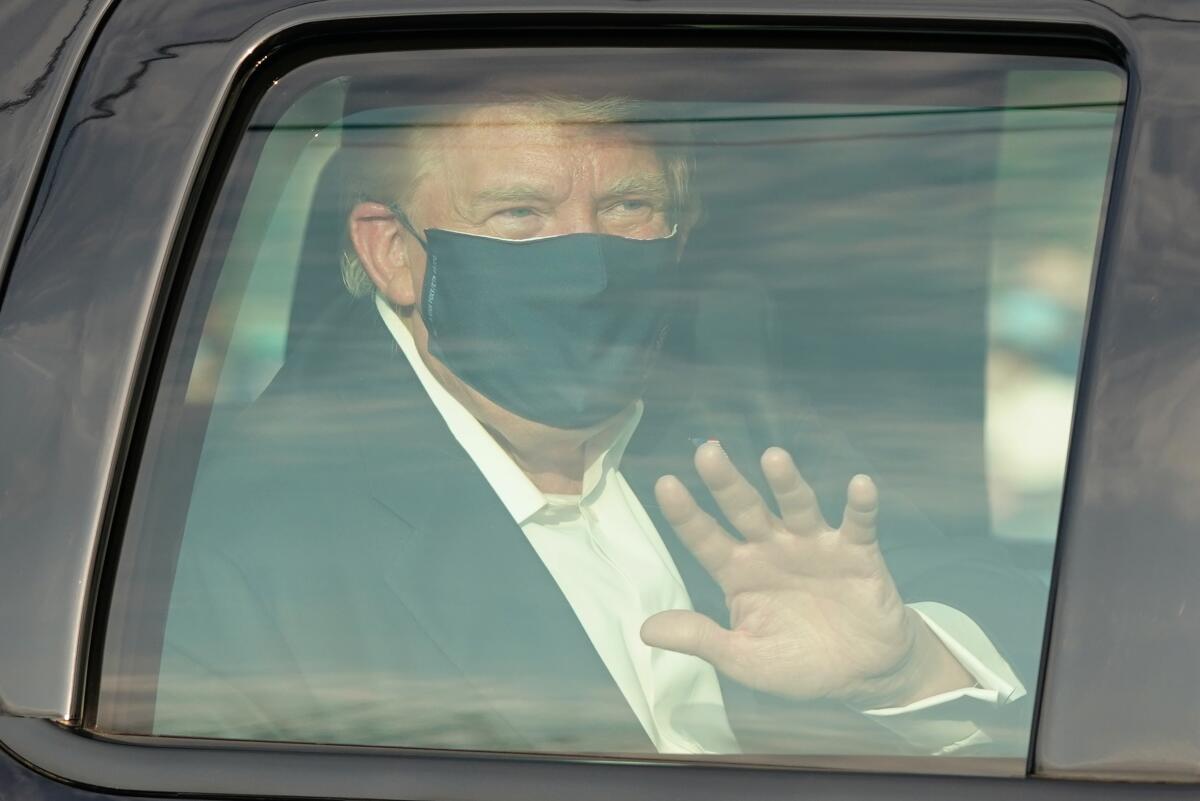
After being treated in the hospital for three days, he tweeted a video in which he told Americans not to let the virus “dominate” their lives, even as COVID-19 hospitalizations surged around the country.
Trump claimed in another video that his COVID-19 infection was a “blessing from God.” He has continued to endanger those around him by returning to work in the Oval Office and pushing to return to the campaign trail.
The president’s behavior comes as no surprise to those who’ve spent years studying and observing Trump, a media showman whom they describe as impervious to facts, advice and shame — and determined to portray any outcome as evidence that he was right all along.
But his actions are difficult to fathom for Kiemba Knowlin, a minister in Flint, Mich., whose predominantly Black congregation has been hit hard by the pandemic. Five men in his church have died from COVID. Knowlin said his mother and two of his seven children also suffered illnesses related to the virus and recovered.
“Going through all of that, it changes how you view the suffering of other people,” Knowlin said.
In grief, Detroit’s Marsha Music writes tender goodbyes, praise-filled shoutouts as the coronavirus outbreak ravages black communities
He only wishes he saw such an evolution in Trump.
Sanders, the project manager who is also Black, said Trump’s misfortune “resonates differently” with people in his community because many lack adequate access to healthcare and can’t properly bury their loved ones killed by COVID-19. Then they see Trump pretend the pandemic isn’t a grave threat — even as he enjoys the best medical care for his own case of COVID.
“They feel like they’re getting their just due, you could say,” Sanders says of many Black people’s reactions.
Verafield, the actress, said that she hopes people who feel as if Trump has let down the country will save up their scorn — and use it to deliver a more stinging clap-back on election day.
“I think that’s our opportunity to show each other as fellow citizens, as well as show other countries, that we have been misrepresented by our leader,” Verafield said. “To redeem ourselves, essentially, for this lack of true leadership.”
Beason reported from Los Angeles, Jarvie from Atlanta and Stokols from Washington.
More to Read
Get the L.A. Times Politics newsletter
Deeply reported insights into legislation, politics and policy from Sacramento, Washington and beyond. In your inbox three times per week.
You may occasionally receive promotional content from the Los Angeles Times.

